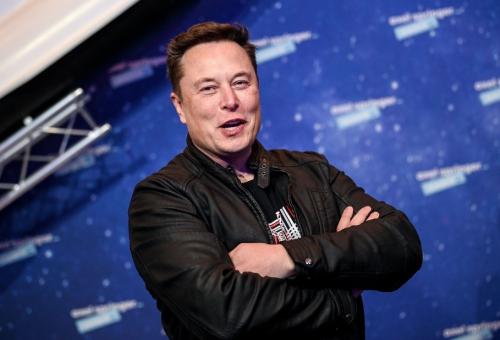Do not welcome our new billionaire overlords
Global inequality and wealth concentration have grown so acute that the necessary resources to address them are now in the hands of a tiny class of plutocrats.
- Opinión

Billionaires now hold so much of the world’s wealth, their apologists argue, there’s no choice but to rely on them for philanthropy. But we can’t take our eyes off the ball: We need to tax the ultrarich out of existence.
Early this month, United Nations World Food Programme director David Beasley issued an appeal to the world’s superrich, specifically naming tech billionaire Elon Musk and arguing that a one-time donation of $2 billion (representing just 2 percent of Musk’s current net worth) could solve the global hunger crisis. Musk, who could well become the world’s first trillionaire, quickly scored a public relations coup with his response: “If WFP can describe on this Twitter thread exactly how $6B will solve world hunger, I will sell Tesla stock right now and do it.” Beasley soon proceeded to offer an unhelpfully pleading and deferential climbdown.
The incident is as good a moment as any to mount the standard, and correct, critique of billionaire and private philanthropy: namely, that they’ve always had less to do with addressing social problems and far more to do with brand-building and soft power cultivation among the world’s superrich. Writer Anand Giridharadas, who calls this process “reputation laundering”, has relentlessly pointed out the basic hypocrisy at the heart of every billionaire do-gooder scheme:
“You first get rich by cutting every possible social corner you can cut — you avoid taxes if you can avoid them, you use trusts and Cayman Islands accounts, you lobby for . . . policies that are good for you and your rich friends and bad for most people, you avoid paying people in creative ways by suppressing minimum wage, outsourcing to contractors. . . . Then, you turn around and you start donating a fraction of that money to various forms of elite do-gooding — philanthropy, corporate social responsibility, for-profit social enterprises, maybe something involving Africa even if you’ve never been.”
In more ways than one, he argues, elite charity closely resembles the selling of papal indulgences in the Middle Ages, it being a relatively simple and inexpensive way of “getting oneself seemingly on the right of justice, without having to alter the fundamentals of one’s life.”
Amid the recent exchange between Beasley and Musk, however, a senior fellow at the Brookings Institution articulated what could well become a new and altogether more insidious variant of the argument generally used in defense of billionaire philanthropy.
In a blog post entitled “Elon Musk, Billionaires, and the United Nations: The 1% Solution to Global Development,” Brookings’s Homi Kharas makes the case that a figure like Musk could indeed represent at least a major part of the solution to a whole host of global problems. Over the course of the piece, Kharas makes a number of interesting observations — among them, that even a single percentage point of billionaire wealth would add up to some $130 billion a year, an amount which approaches the combined $160 billion in annual aid committed by countries and multinational institutions. What might potentially be done with $130 billion, he adds, includes the eradication of extreme poverty, the reduction of global hunger, and any number of environmental initiatives.
The problem is that these data points, illustrative as they are, don’t really mean what Kharas thinks they do, the original catalyst for his argument being a dead giveaway. “Until recently,” he begins,
“even the wealthiest individuals did not have enough money to make a material dent in global problems, let alone “solve” them. Compared to the size of national economies, or the budgets of the governments of national economies, their wealth appeared small. This is no longer the case. There are 2,755 billionaires in the world today, with an estimated wealth of $13.2 trillion. . . . Looking for contributions from billionaires has [thus] moved from a nice-to-have niche improvement to becoming part of the conversation on financing to solve large-scale global issues. . . . For the first time in history, a small group of private individuals could, if they so choose, materially impact global development at a scale that has previously been the near exclusive domain of governments.”
What’s really being said here is that global inequality and wealth concentration have grown so acute that the necessary resources to address them (and a whole host of other social problems) are now in the hands of a tiny class of plutocrats. Though he does include a perfunctory reference to taxation, the development Kharas’s post describes is one he’s mostly inviting us in wide-eyed fashion to celebrate, as if the return of Gilded Age–level inequality represents a new and exciting opportunity rather than the very essence of many global problems.
He may be right, of course, that the scale of global wealth concentration among a handful of individuals will, in turn, enable private philanthropists to attain a level of power yet unseen — potentially binding the everyday material conditions of millions, or even billions, to the individual whims of a few capitalists. But that’s a case for a global wealth tax rather than a new age of feudalism.
- Luke Savage is a staff writer at Jacobin.
https://www.jacobinmag.com/author/luke-savage
